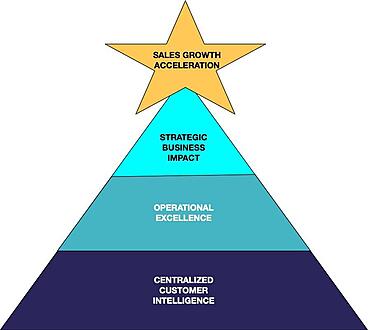
Well Managed CRMs Accelerate Sales Growth
A well-implemented and managed Customer Relationship Management (CRM) system is a powerful growth engine for sales organizations. Companies that effectively deploy CRM solutions report:
- 29% increase in sales revenue
- 34% improvement in sales productivity
- 42% higher forecast accuracy
- 25% reduction in sales cycle duration
- 32% enhancement in team collaboration
This article outlines why you need an optimized CRM system to drive measurable business outcomes through improved process efficiency, data-driven decision making, and enhanced customer engagement.
The Strategic Role of CRM in Sales Growth
A properly configured and managed CRM serves as the operational backbone for sales activities, ensuring teams remain organized, focused, and aligned with business objectives. Here's how a CRM directly contributes to accelerated sales growth:
Centralized Customer Data Repository
A CRM consolidates all customer interactions, contact details, purchase history, and engagement activities into a unified database. This 360-degree customer view enables sales representatives to:
- Tailor their approach based on historical interactions
- Personalize communication to address specific customer requirements
- Identify cross-selling and upselling opportunities through pattern recognition
- Build stronger customer relationships through contextual engagement
Data centralization leads to improved conversion rates and increased customer lifetime value through more relevant engagements.
Systematic Lead Management Process
An optimized CRM implementation establishes a structured lead management framework that:
- Automates lead scoring based on predefined qualification criteria
- Prioritizes prospects according to engagement levels and purchase signals
- Triggers workflow-based follow-up sequences at predetermined intervals
- Implements nurturing campaigns through the entire buyer's journey
Systematic lead management processes ensure high-potential opportunities receive timely attention, significantly reducing revenue leakage.
Real-time Pipeline Visibility and Management
CRM systems provide dynamic insights into the sales pipeline, enabling sales leaders to:
- Monitor deal progression through established sales stages
- Identify process bottlenecks using velocity metrics
- Forecast revenue with greater precision using probability-weighted projections
- Implement targeted interventions to accelerate stalled opportunities
Enhanced pipeline visibility enables proactive sales management and fewer lost deals.
Personalized Engagement Workflows
Modern sales effectiveness depends on relevant, timely customer interactions. CRMs facilitate this through:
- Tracking of customer preferences and behavioral patterns
- Documentation of pain points and business requirements
- Automation of contextual communication through trigger-based rules
- AI-driven recommendations for next best actions
Personalized engagement workflows significantly enhance customer intimacy and engagement quality, and improve conversion probability.
Process Automation for Operational Efficiency
Manual administrative tasks can consume up to 65% of a sales representative's time. A well-configured CRM automates:
- Data entry through integration with communication platforms
- Activity logging through mobile applications and email plugins
- Document generation for proposals, quotes, and contracts
- Meeting scheduling and follow-up communication
CRM automation redirects selling time toward high-value relationship-building activities.
Analytics-Driven Strategy Optimization
CRM analytics enable continuous process improvement through:
- Performance tracking across key conversion metrics
- Comparative analysis of deal velocity by segment
- Customer acquisition cost and lifetime value calculations
- Win/loss analysis for process refinement
Analytics-driven insights allow sales organizations to adjust strategy dynamically and optimize resource allocation for maximum customer impact.
Cross-functional Collaboration Framework
An integrated CRM establishes a unified platform for collaboration between:
- Sales and Marketing for lead qualification alignment
- Sales and Product Development for voice-of-customer insights
- Sales and Customer Success for seamless account transitions
- Sales and Finance for accurate forecasting and planning
CRM's collaborative environment creates a cohesive customer experience throughout the entire relationship lifecycle.
Conclusion: CRM as a Growth Accelerator
A strategically implemented CRM system serves as more than a contact database—it's an operational framework that systematically drives sales growth by optimizing processes, improving data-driven decision-making, and enhancing customer engagement. Organizations that approach CRM implementation as a business transformation initiative rather than a technology deployment consistently achieve superior results.
For maximum impact, organizations should:
- Align your CRM configuration with your customers buying journey
- Clearly define your sales processes and ensure they align with the buying journey of your customers
- Implement a structured data governance framework with insightful reports and dashboards
- Automate routine tasks to maximize selling time
- Leverage analytics for continuous process optimization
- Ensure cross-functional integration for seamless operations
A well-implemented CRM can transform your sales and achieve sustainable revenue growth in increasingly competitive markets.

